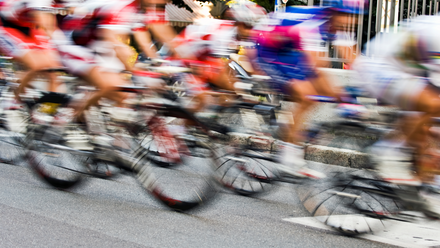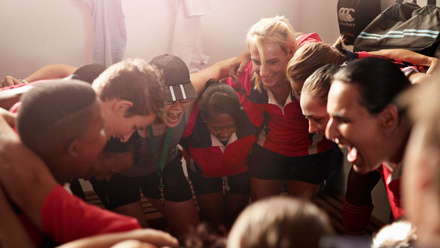by Katherine Harris, Postgraduate Student, University Of Chester
During my time at university, I'd been running regularly to help keep fit and support my learning. As my running ability and dietetic clinical knowledge developed, I soon started to combine them to enhance my running performance.
Following my eighth half marathon, l decided to challenge myself with the full 26.2 miles.
Prior to accepting the marathon challenge, l was anxious about being able to safely maintain good health on a vegetarian diet while also following an intense training regime. I was aware that the jump from half to full-marathon was not just about the doubled mileage, but also the whole approach to nutrition and training intensity. For example, from little thought of pre/ post-running nutrition or hydration, the jump to 26.2 miles involved planning specific macronutrient intakes and balancing electrolytes. However, the concerns were quickly eliminated, using research to set up a training and nutrition plan, which helped me reach the finish line.
Sources of energy during training for a marathon
To ensure l was achieving adequate nutritional intake during my training, I collected energy expenditure data using a running watch. The recommended macronutrient composition was suggested to be the same for athletes as for the general public (1,2 - see references below). Therefore, I used an online analysis database to calculate the proportion of carbohydrate, protein and fat l was consuming and compared it with the public health recommendations (1,2), which only showed a 10% increase in energy intake from carbohydrate.
As a vegetarian, l had the extra challenge of achieving 1.2-1.4g /kg/day of protein, which equates to a 15% increase from population-based requirements (O.Sg/kg/ day) (1,3). Therefore I used alternative protein sources combined with nutritional analysis software to ensure I was meeting the increased requirements.
Additionally, the constant impact on the bones and joints from hard surface running requires sufficient calcium intake (1,3). So I used my knowledge of food fortification to increase calcium intake, using milk powder and an increased intake of other dairy products.
Although athletes do not require increased micronutrient intakes, due to the overall increase in energy consumption, as a female vegetarian I had the added risk of iron deficiency, where iron has an important role in aerobic metabolism within cells (4,1,5,3). l used my understanding of nutrient interactions to increase my absorption of iron, such as combining iron-rich sources with vitamin C rich foods (5,3).
Disturbingly, l started getting headaches throughout my training and eventually realised I was inadequately replenishing my electrolytes lost from sweat (4,1,3). So l practised combining 500ml of water with a soluble electrolyte tablet alongside consuming energy gels intermittently throughout training, which kept cramps and headaches at bay.
Putting research into practice
Pre-loading carbohydrate
Carbohydrate loading has been shown to delay fatigue and enhance performance in long-distance runners, allowing the muscles to store optimum amounts of glycogen (1,5,3). Although, in my experience, I found it difficult to reach the increased carbohydrate requirements (8g /kg/ day), research suggests minimal effect in female athletes (4).
Race day
Due to nerves, I struggled to reach my 100g-carbohydrate intake four hours prior to the run, but instead I managed 86g two hours before:
- 60g parridge oats (36gCHO)
- 200ml semi-skimmed milk (9.6CHO)
- 1 large banana (25.5gCHO)
- 75ml beetroot juice (15gCHO)
Evidence suggests the high level of nitric oxide in beetroot juice increases efficiency and strengthening of muscle contraction (6). However it was unknown whether it had a beneficial effect on my running performance.
Just keep running
Products to support running energy indude gels and bars, which provide quick-absorbing carbohydrates for efficient utilisation by the muscles (1,5,3). lt was recommended to consume 80-90gCHO / hr, for >3hr running events, where one gel contained 22gCHO.
However, I managed to sustain my energy levels with 1 gel/hr, consuming 1 gel every four to six miles.
Therefore recommendations are likely to vary between individuals.
Recovery nutrition
Research recommends consuming adequate amounts of CHO to replenish depleted glycogen stores and spare the musdes' use of protein during repair (1,5,3). Conversely too much protein could delay gastric emptying and increase time of nutrient delivery to muscles(1).
Recommendations include 4:1 ratio (CHO: protein), within 30- minutes
of recovery (1). However, before the marathon, my lazy method of recovery nutrition involved consuming a £2.50 shop bought protein shake, which contained 1:1 ratio of carbohydrate to protein (25g). Additionally, compared to requirements of >50gCHO, my intake was inadequate (2,5). Therefore I designed my own recovery meal, which equated to 64gCHO and 22g protein (1:3 ratio) and cost £0.43, ultimately saving £2.07:
- 200ml milk (9.6gCHO)
- 20g chocolate drinking powder (15.2CHO)
- 2 slices of toast (35.6gCHO)
- 20g peanut butter (3.6gCHO)
After the finish line
In conclusion, from practising sport nutrition recommendations from current research, it became clear that findings do not necessarily apply to the general population, especially since population-based studies are limited in sport clinical trials. However, I succeeded by determining an individualised nutrition plan, while developing useful clinical skills in research and dietary analysis.
References
- Flynn. L. (2014). Marathon runners and their nutrition views, practices and sources of nutrition information. Retrieved from https://surface.syr.edu/thesis/index.3.html
- Public Health England. (2016). The eatwell guide.
- Williamson, E. (2016). Nutritional implications for ultra-endurance watking and running events. Extreme Physiology & Medicine, 5(1) doi:10.1186/ sl3728-016-0054-0
- Deldicque, L. & Francaux. M. 2015). Recommendations for healthy nutrition in female endurance runners: An update. Frontiers in Nutrition, 2, 17. doi:10.3389/fnut. 2015.00017creating-killer-usp
- Public Health England. 5. Gandy, J. (2013). Manual of dietetic practice (5th ed.). Chichester. Wiley-Blackwell
- Dominguez. R., Cuenca, E., Mate-Munoz. J., Garcia-Fernandez, P .. Serra-Paya. N., Estevan, M .. Gamache-Castano, M. (2017). Effects of beetroot juice supplementation on cardiorespiratory endurance in athletes. A systematic review. Nutrients. 9(1). 43. doi:10.3390/nu9010043
Read our Food Fact Sheet on sport and exercise.







